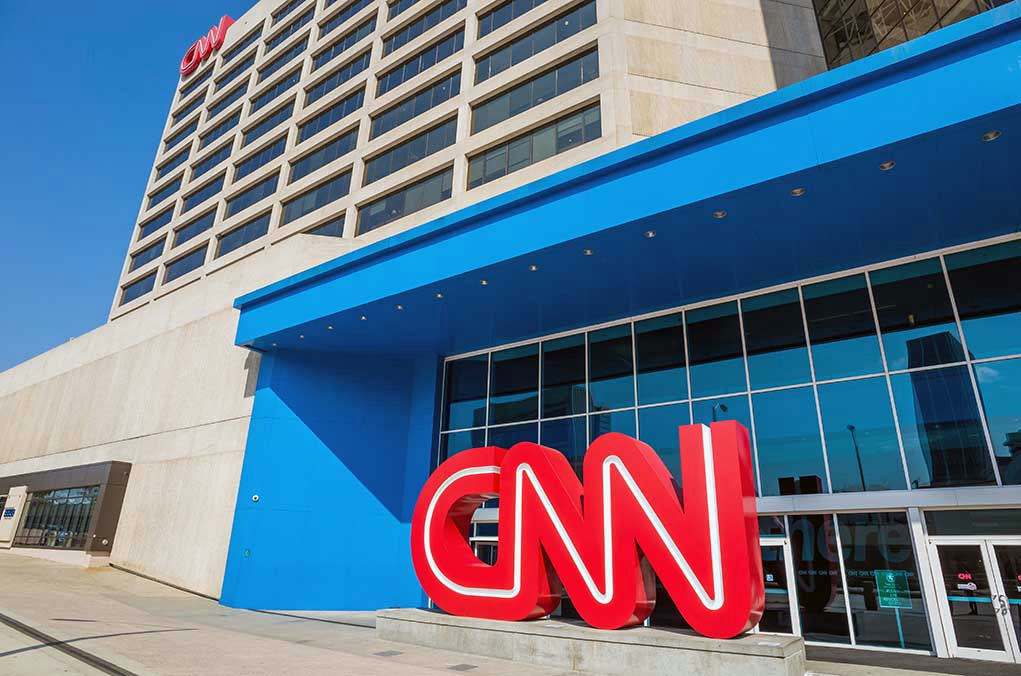EPA Administrator Lee Zeldin’s on-air rebuke of CNN’s misleading climate coverage has ignited fierce debate over media bias and regulatory overreach, spotlighting the battle to restore constitutional limits and consumer freedom in America.
Zeldin Confronts CNN Over Media Framing of Deregulation
During a high-profile appearance on CNN’s “State of the Union,” EPA Administrator Lee Zeldin directly challenged host Kasie Hunt for airing unrelated footage of power plant smokestacks while discussing the agency’s new proposal to rescind the Obama-era Endangerment Finding for vehicles. Zeldin charged the network with misleading viewers and misrepresenting the scope of the EPA’s deregulation, which focuses exclusively on vehicle emissions—not stationary sources like power plants. This exchange has become a flashpoint in the ongoing struggle against media narratives that many conservatives believe distort the facts and undermine trust in public discourse.
The controversy underscores a growing frustration among Trump supporters and constitutional conservatives: major media outlets are seen as pushing narratives that blur the line between environmental policy and ideological activism. By conflating vehicle emissions deregulation with broader pollution imagery, critics argue, outlets like CNN risk misleading the public about what the EPA’s proposal actually does. For many Americans, this episode is a reminder of the urgent need to hold media accountable and demand honest, fact-based reporting—especially when constitutional limits and economic freedoms are at stake.
Rollback of Obama-Era Vehicle Emissions Rules: Policy and Political Stakes
The EPA’s proposed rollback, officially released July 29, 2025, seeks to rescind the 2009 Endangerment Finding as it applies to greenhouse gases from mobile sources, namely cars and trucks. This move would reverse much of the regulatory foundation that enabled federal electric vehicle mandates and restrictive emissions standards advanced under the Obama and Biden administrations. Zeldin, nominated by President Trump and confirmed in January, frames the proposal as a return to common sense: restoring consumer choice, defending American industry, and resisting what many view as the costly overreach of climate alarmism. The Trump administration’s “energy dominance” agenda has found new momentum, with Zeldin leading a deregulatory charge hailed by industry and free-market advocates.
For many conservatives, these changes are a long-awaited correction. The previous regulatory regime is seen as having eroded both individual liberty and traditional American values—forcing automakers and consumers into expensive, government-mandated electric vehicles, and driving up costs through aggressive federal intervention. The new proposal promises relief from these burdens, while reaffirming the constitutional principle that major regulatory changes must be justified by clear evidence and subject to democratic oversight. The move also highlights the sharp divide between states like California, which maintain their own emissions standards, and federal efforts to unify the rules under a more limited, market-friendly approach.
Media Representation, Legal Challenges, and the Road Ahead
Media coverage has quickly become a battleground, with outlets like CNN accused of sensationalizing and misrepresenting the deregulatory agenda in ways that stoke public fear and sideline legitimate concerns over government overreach. The Zeldin-CNN confrontation has galvanized conservatives, many of whom see the episode as emblematic of a broader campaign to delegitimize constitutional reforms and undermine the Trump administration’s efforts to restore limited government. Environmental advocacy groups and some state officials have condemned the EPA’s proposal, warning of increased emissions and public health risks. They are preparing legal challenges, arguing that rescinding the Endangerment Finding will be difficult to defend in court without robust scientific justification.
Despite these obstacles, Zeldin and Trump administration allies remain steadfast in their commitment to deregulation and consumer freedom. The EPA’s proposal is now in the public comment phase, with final decisions expected to face intense legal scrutiny. The stakes are high: a successful rollback could slow the federally mandated transition to electric vehicles, reduce regulatory costs for American manufacturers, and reaffirm the primacy of individual liberty and free choice in U.S. policy. For conservatives frustrated by years of government overreach, media bias, and attacks on core values, the fight is far from over—but the Zeldin-CNN showdown marks a major milestone in reclaiming the national debate.
READ NOW: WATCH: EPA Head Zeldin Rebukes CNN Host's Misleading Reporting Live on Air — EPA Head Lee Zeldin rebuked a CNN host live on her own show for showing clips–unrelated to their conversation–of power plants blowing…https://t.co/0sbe4RUDs2
— Top News by CPAC (@TopNewsbyCPAC) August 5, 2025
As the debate rages on, Americans are confronted with a fundamental question: who gets to define the nation’s environmental future—unelected bureaucrats and media elites, or the people themselves through open debate and accountable government? The answer will shape not only the fate of climate regulation, but the future of constitutional liberty and the rule of law in the United States.
Sources:
Meet the ‘great deregulator’ Trump chose to lead EPA – E&E News
What to expect from Lee Zeldin, Trump’s pick for EPA administrator – National Wildlife Federation
Administrator of the Environmental Protection Agency – Wikipedia

